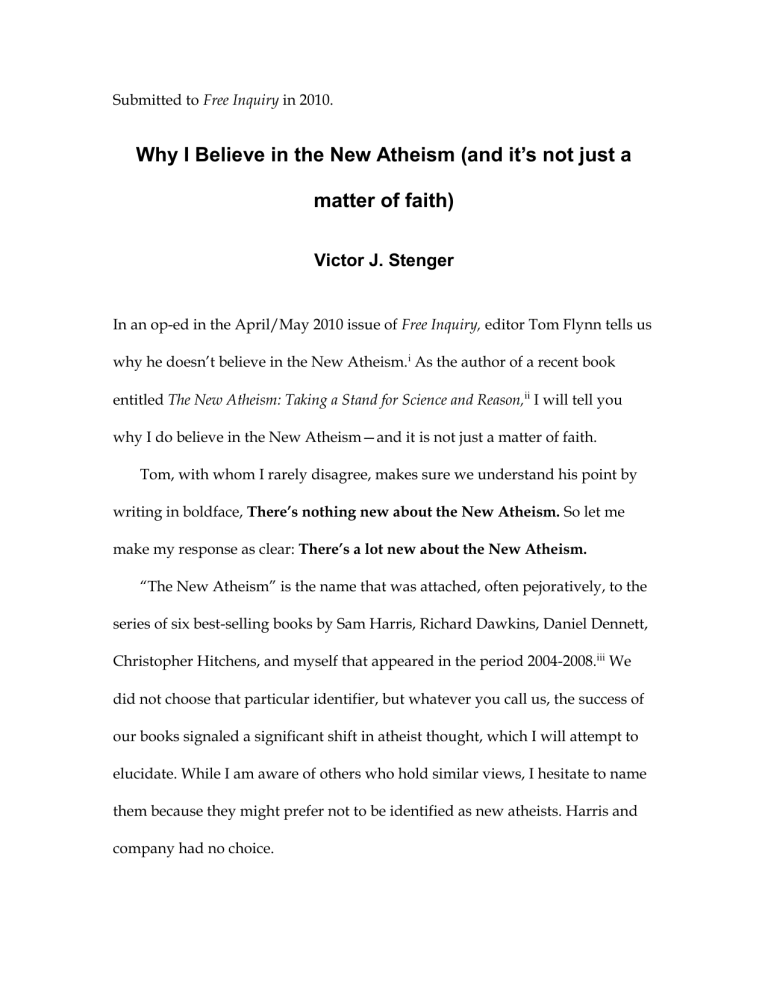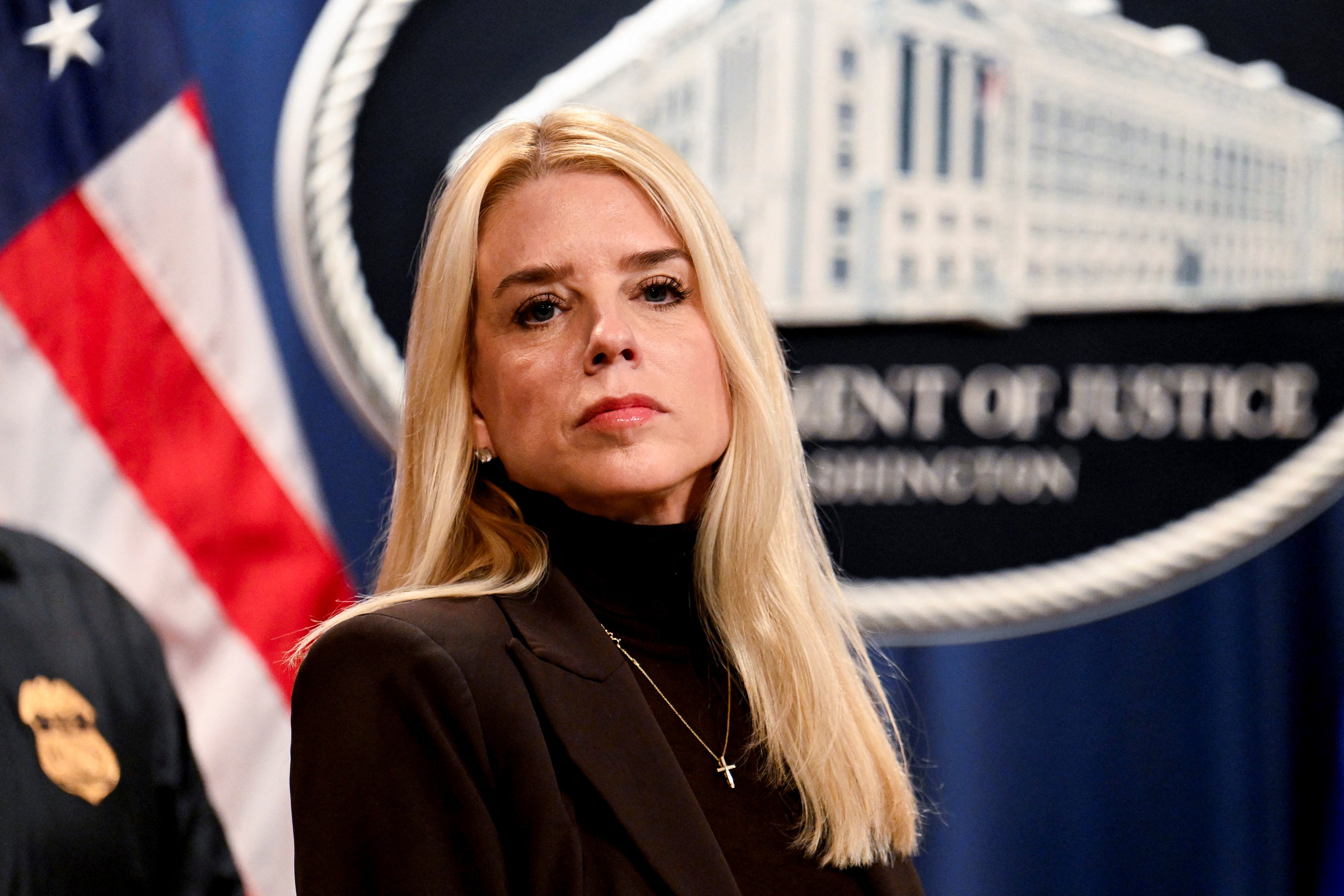New Pope Leo Condemns Spread Of De Facto Atheism

Table of Contents
Pope Leo's Definition of De Facto Atheism
Unlike overt atheism, which explicitly denies the existence of God, Pope Leo defines de facto atheism as a practical disregard for God in daily life. It's a lived reality where individuals, regardless of their professed belief, conduct their lives as if God doesn't exist. This isn't necessarily a conscious rejection of faith but rather a form of passive secularism.
-
Living as if God doesn't exist: This encompasses choices and behaviors that prioritize material concerns over spiritual ones, often neglecting prayer, religious observance, and moral considerations rooted in faith. This can manifest in various ways, from personal choices to societal structures.
-
Societal structures marginalizing religion: Pope Leo cites examples such as the increasing secularization of education systems, minimizing religious instruction and promoting a worldview that often excludes or downplays the role of faith. He also points to societal laws and policies that actively discriminate against or ignore religious considerations.
-
Erosion of faith through apathy and indifference: The Pope emphasizes the danger of a gradual erosion of faith stemming from apathy and indifference towards spiritual matters. This creeping secularism can subtly undermine traditional values and beliefs, leading to a society where faith plays a diminishing role.
The Dangers of De Facto Atheism According to Pope Leo
Pope Leo articulates several profound concerns about the societal consequences of widespread de facto atheism. He argues that it poses a significant threat to the moral fabric of society and individual well-being.
-
Loss of moral compass and increased social fragmentation: The absence of a shared moral framework, rooted in religious values, can lead to a decline in ethical behavior and increased social fragmentation. This can result in a lack of consensus on fundamental issues, contributing to social unrest and division.
-
Diminished sense of community and shared values: Religious faith often serves as a cornerstone for strong communities, fostering shared values and a sense of belonging. The decline of religious practice can weaken social bonds and lead to increased isolation and loneliness.
-
Negative impact on individual well-being and mental health: Pope Leo emphasizes the importance of faith for individual well-being and mental health, providing solace, purpose, and a sense of meaning in life. The absence of faith can leave a spiritual void, potentially contributing to feelings of anxiety, depression, and alienation.
-
Potential for political instability and social unrest: A society lacking a strong moral compass and shared values is more susceptible to political instability and social unrest. The erosion of religious influence can create a power vacuum, potentially leading to extremist ideologies and conflict.
Pope Leo's Call to Action Against De Facto Atheism
Pope Leo doesn't simply lament the rise of de facto atheism; he offers a proactive call to action, urging believers to actively counter its influence. His strategy emphasizes education, community building, and social engagement.
-
Renewed emphasis on religious education and outreach programs: He stresses the importance of robust religious education programs, tailored to meet the needs of modern society, to instill faith in younger generations and provide a strong foundation for ethical decision-making.
-
Fostering strong faith communities and interfaith dialogue: Pope Leo advocates for strengthening existing faith communities and fostering interfaith dialogue to promote understanding, tolerance, and collaboration between different religious groups.
-
Call for greater social engagement and charitable works by believers: He emphasizes the importance of actively engaging in social justice initiatives and charitable works, demonstrating the practical application of faith in addressing societal needs.
-
The need for a stronger public voice for religious values: The Pope calls for believers to articulate and defend their faith in the public square, participating in political discourse and advocating for policies that reflect religious values.
The Role of the Church in Combating De Facto Atheism
The Catholic Church has a vital role to play in addressing de facto atheism. This requires a multifaceted approach.
-
Modernizing outreach methods to reach younger generations: The church must adopt innovative strategies to engage younger generations, utilizing social media, technology, and contemporary language to communicate religious messages effectively.
-
Addressing critical issues relevant to modern life with a faith-based perspective: The church must demonstrate the relevance of faith to contemporary challenges such as climate change, poverty, and social injustice, offering faith-based solutions and perspectives.
-
Fostering inclusivity and addressing concerns of those alienated from the church: Creating a welcoming and inclusive environment is crucial to attract those who feel alienated or marginalized by the church. This involves addressing issues of social justice and fostering empathy and understanding.
Conclusion
Pope Leo's condemnation of de facto atheism highlights a growing concern within the Catholic Church and beyond. His call to action underscores the need for a proactive response to the subtle yet pervasive influence of secularism on modern society. The Pope's emphasis on education, community building, and social engagement provides a roadmap for believers to counter the spread of this form of practical atheism. Understanding and addressing the rise of de facto atheism is crucial for the future of faith. Let us heed Pope Leo's call and actively engage in strengthening our communities, promoting religious values, and fostering a renewed sense of faith in the face of secular challenges. Learn more about the Pope's stance on de facto atheism and how you can contribute to the fight against its influence.

Featured Posts
-
 Germaniya Riski Novogo Pritoka Ukrainskikh Bezhentsev Sprovotsirovannogo S Sh A
May 10, 2025
Germaniya Riski Novogo Pritoka Ukrainskikh Bezhentsev Sprovotsirovannogo S Sh A
May 10, 2025 -
 A Comprehensive Guide To Wheelchair Access On The Elizabeth Line
May 10, 2025
A Comprehensive Guide To Wheelchair Access On The Elizabeth Line
May 10, 2025 -
 Pam Bondi And James Comer Clash Over Epstein Files
May 10, 2025
Pam Bondi And James Comer Clash Over Epstein Files
May 10, 2025 -
 Attorney Generals Fentanyl Display A Deeper Look
May 10, 2025
Attorney Generals Fentanyl Display A Deeper Look
May 10, 2025 -
 Chinas Canola Supply Chain Adapting To The Post Canada Era
May 10, 2025
Chinas Canola Supply Chain Adapting To The Post Canada Era
May 10, 2025
